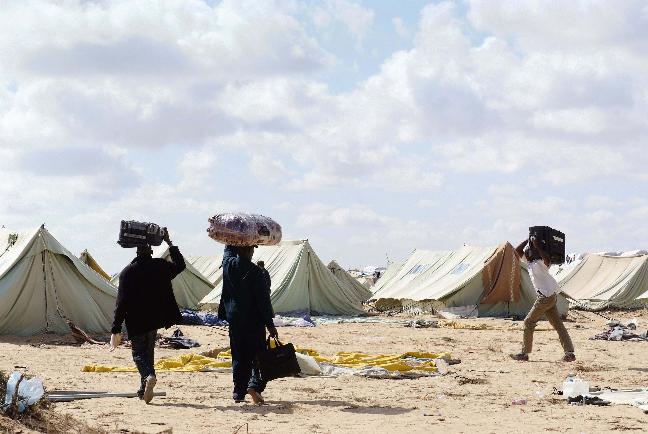The United Nations High Commissioner for Refugees (UNHCR) is calling on States to keep their borders open for Nigerians fleeing the escalating violence in their country and who may be in need of international protection.
The Geneva-based agency is also advising States against forced returns of people to the region, spokesperson Dan McNorton told reporters.
“Our recommendations are contained in a newly issued Return Advisory, which seeks to ensure that humanitarian and asylum principles are upheld in light of the worsening security situation in north-eastern Nigeria,” he stated.
Conflict between the Nigerian army and insurgents in the north-eastern states of Adamawa, Borno and Yobe has led to deteriorating security and humanitarian conditions in the region, which has been under a state of emergency since May.
According to UNHCR, violence is estimated to have displaced an estimated 5,000 people within the region, but as humanitarian access has been hampered by the attacks, the agency believes the actual number of people affected could be significantly higher.
Some 10,000 Nigerians have also crossed into neighbouring Cameroon, Chad and Niger in recent months. Most – around 8,100 – have sought refuge in Cameroon, according to local authorities who say that Nigerians are continuing to arrive. The number of Nigerian refugees in Niger is 2,700, and in Chad 150.
Mr. McNorton said UNHCR has been “alarmed” by reports of the attempted forced return of 111 people from Cameroon to Nigeria on 5 October, during which 15 people were killed and another seven wounded. The remaining 89 individuals immediately fled back to Cameroon and were detained.
“UNHCR is working with the Government of Cameroon to assess whether there are people in the group in need of international protection,” said Mr. McNorton.
He noted that in light of the security situation in north-eastern Nigeria, people fleeing are likely to meet the criteria for refugee status as outlined in international treaties.
UNHCR said its Return Advisory will remain in effect until the security and human rights situation in north-eastern Nigeria has improved sufficiently to permit a safe and dignified return.
allAfrica.com



